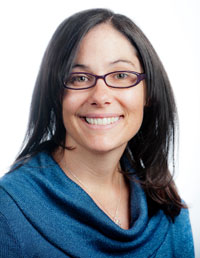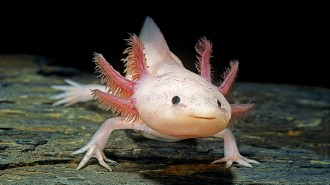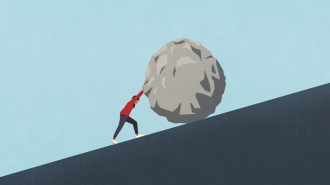One anniversary to celebrate, one to contemplate
By Eva Emerson
- More than 2 years ago
 As all readers of Science News know, scientific knowledge advances relentlessly. Whether it is news of a potential new drug for Crohn’s disease, an aurora detected on Mars or a science fiction–like 3-D printer that makes objects from a pool of goo, each issue is chock-full of the latest exciting developments. But sometimes it’s useful to look back and take stock of where we are and how we got here. In this issue, both feature articles focus on anniversaries, though of two very different kinds.
As all readers of Science News know, scientific knowledge advances relentlessly. Whether it is news of a potential new drug for Crohn’s disease, an aurora detected on Mars or a science fiction–like 3-D printer that makes objects from a pool of goo, each issue is chock-full of the latest exciting developments. But sometimes it’s useful to look back and take stock of where we are and how we got here. In this issue, both feature articles focus on anniversaries, though of two very different kinds.
The story of the Hubble Space Telescope is an inspiring one. As astronomy writer Christopher Crockett describes, scientists had ambitious plans for the telescope when it launched 25 years ago this month. By escaping Earth’s atmosphere, the giant eye in the sky would be able to see deep into space more clearly than telescopes on the ground. Hubble eventually captured images of distant objects that no one even knew about a quarter-century ago. Exoplanets, now being studied by Hubble, offer a dramatic example. The telescope has also achieved one of its main original missions: to measure how fast the universe is expanding, settling a long-standing astronomical controversy. And Hubble helped establish that the universe’s expansion rate is accelerating, a surprise to many.
Hubble’s success is clear. It has advanced astronomical understanding by leaps and bounds. And there will no doubt be more discoveries to celebrate when Hubble marks its 30th anniversary in five years’ time.
Chemistry and environment writer Beth Mole recounts a much more troubling anniversary: Just five years ago, the explosion of the Deepwater Horizon oil rig set off the globe’s largest accidental oil spill. Scientists have responded with studies to track the disaster’s long-term impacts. Much remains unclear, from the fate of three-quarters of the released oil to how the spill might have altered ecosystems in the Gulf of Mexico. Adding urgency to the work is the expectation that similar disasters are destined to happen again. Hopefully, by the 10-year mark, researchers will have a better idea of the best way to mitigate the damage.







